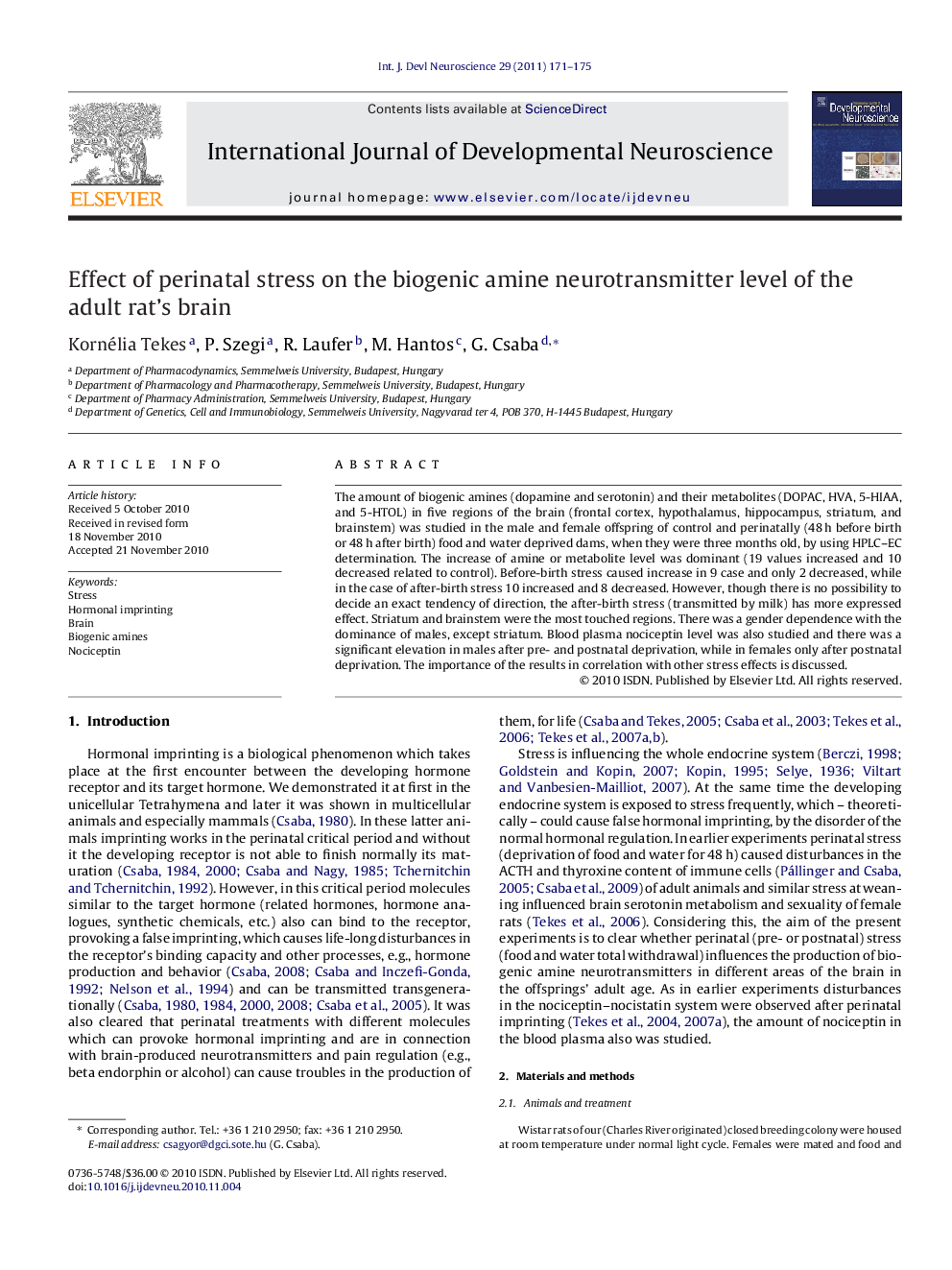| Article ID | Journal | Published Year | Pages | File Type |
|---|---|---|---|---|
| 5893977 | International Journal of Developmental Neuroscience | 2011 | 5 Pages |
The amount of biogenic amines (dopamine and serotonin) and their metabolites (DOPAC, HVA, 5-HIAA, and 5-HTOL) in five regions of the brain (frontal cortex, hypothalamus, hippocampus, striatum, and brainstem) was studied in the male and female offspring of control and perinatally (48Â h before birth or 48Â h after birth) food and water deprived dams, when they were three months old, by using HPLC-EC determination. The increase of amine or metabolite level was dominant (19 values increased and 10 decreased related to control). Before-birth stress caused increase in 9 case and only 2 decreased, while in the case of after-birth stress 10 increased and 8 decreased. However, though there is no possibility to decide an exact tendency of direction, the after-birth stress (transmitted by milk) has more expressed effect. Striatum and brainstem were the most touched regions. There was a gender dependence with the dominance of males, except striatum. Blood plasma nociceptin level was also studied and there was a significant elevation in males after pre- and postnatal deprivation, while in females only after postnatal deprivation. The importance of the results in correlation with other stress effects is discussed.
Research highlightsⶠThe results point to the life-long effect of perinatal stress on the brain amines, which can influence both normal and pathological processes. Five brain regions were studied: frontal cortex, hypothalamus, hippocampus, striatum and brainstem. The stress disturbed (mainly in males) the biogenic amine metabolism 3 months after the perinatal intervention. Striatumk and brainstem were the most touched regions. Gender dependence was observed. Blood plasma nociceptin level shoved significant elevation. The results call attention to the life-long effects of perinatal imprinting.
